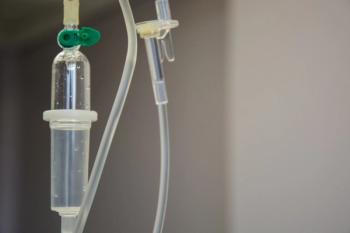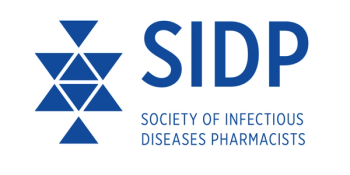
Antimicrobial Stewardship
Latest News
Latest Videos
CME Content
More News

Though the drug is initially more expensive, treating C diff infection with fidaxomicin reduced costs overall by reducing CDI recurrences.

As the first line of acute care, emergency departments are key stewards of antibiotics.

So far, the Virginia Mason Medical Center in Seattle has confirmed 33 patients have been infected with Klebsiella pneumoniae bacteria, 9 of whom have died.

Collaboration and teamwork are essential components in addressing UTI management and antibiotic resistance, explains infectious disease clinical specialist Kim Leuthner, PharmD, FIDSA.

New evidence suggests that oral transitional therapy may be a promising option for the treatment of infective endocarditis (IE). A retrospective cohort study reveals comparable clinical outcomes between oral and intravenous antibiotic regimens.

Unnecessary antibiotics for viral infections and incorrect prescriptions for bacterial infections have significant consequences, including increased adverse effects and healthcare expenditures.

An expert in infectious diseases reviews best practices for improving personalized medicine when treating complicated urinary tract infections and highlights the importance of antimicrobial stewardship.

Kim Leuthner, PharmD, FIDSA, comments on the effect of COVID-19 on the epidemiology of complicated UTIs, the use of antibiotics, and antimicrobial resistance.

An infectious disease clinical specialist shares treatment considerations for patients with complicated urinary tract infections, including for patients with comorbidities and older patients, and reviews antimicrobial therapies for multidrug-resistant UTIs.

Kim Leuthner, PharmD, FIDSA, provides insight on distinguishing between complicated and uncomplicated UTIs, and patients who are at high risk for developing complicated UTIs.

The innovative antibiotic Xacduro has received FDA approval for its efficacy against ventilator-associated bacterial pneumonia caused by Acinetobacter baumannii-calcoaceticus. The intravenous therapy combines sulbactam and durlobactamto target multidrug-resistant and carbapenem-resistant strains.

Today, we celebrate the crucial role of infectious disease pharmacists in combating infectious diseases and promoting patient safety.

Empiric therapy for severe Salmonella disease remains effective, but fluoroquinolone resistance calls for a shift towards trimethoprim-sulfamethoxazole as the preferred oral treatment for non-severe cases.

Sulbactam-durlobactam is efficacious against carbapenem-resistant infections, and Innoviva is preparing for the antibiotic's PDUFA at the end of this month.

Antifungal therapy was frequently initiated before essential diagnostic elements confirmed invasive fungal infections in critically ill COVID-19 patients.

Outpatient parenteral antimicrobial therapy (OPAT) offers benefits for patients as well as providing cost effectiveness; however, it is not without its challenges. Two clinicians provide insights on this modality.

The WHO issued its first ever list of priority antibiotics for pediatrics to encourage research and development targeting needs of that population.

Members of both branches brought it back to gain support and passage of a bill aimed at greater development of antibiotics.

A paradigm shift is emerging when it comes to the clinical approach to prescribing antibiotics. One clinician weighs in on using this class of therapeutics more judiciously.

By addressing ART-related medication errors and increasing linkage to care, antiretroviral stewardship programs can improve management of inpatients with HIV.

This was the first study to compare clinical outcomes in carbapenemase-producing (CP-CRE) and non–carbapenemase-producing (nCP-CRE) infections.


The FDA’s Antimicrobial Drugs Advisory Committee (AMDAC) voted 12-0 in favor of recommending this antibiotic and sets up a PDUFA target action date of May 29.

Several years after its FDA approval, this antibiotic continues to prove its efficacy in vitro across various pathogens related to these infections.

Alita Miller, PhD, senior vice president of research at Entasis Therapeutics, discusses positive trial data for Sulbactam-durlobactam (SUL-DUR) slated to be presented at ECCMID 2023.





































































































































